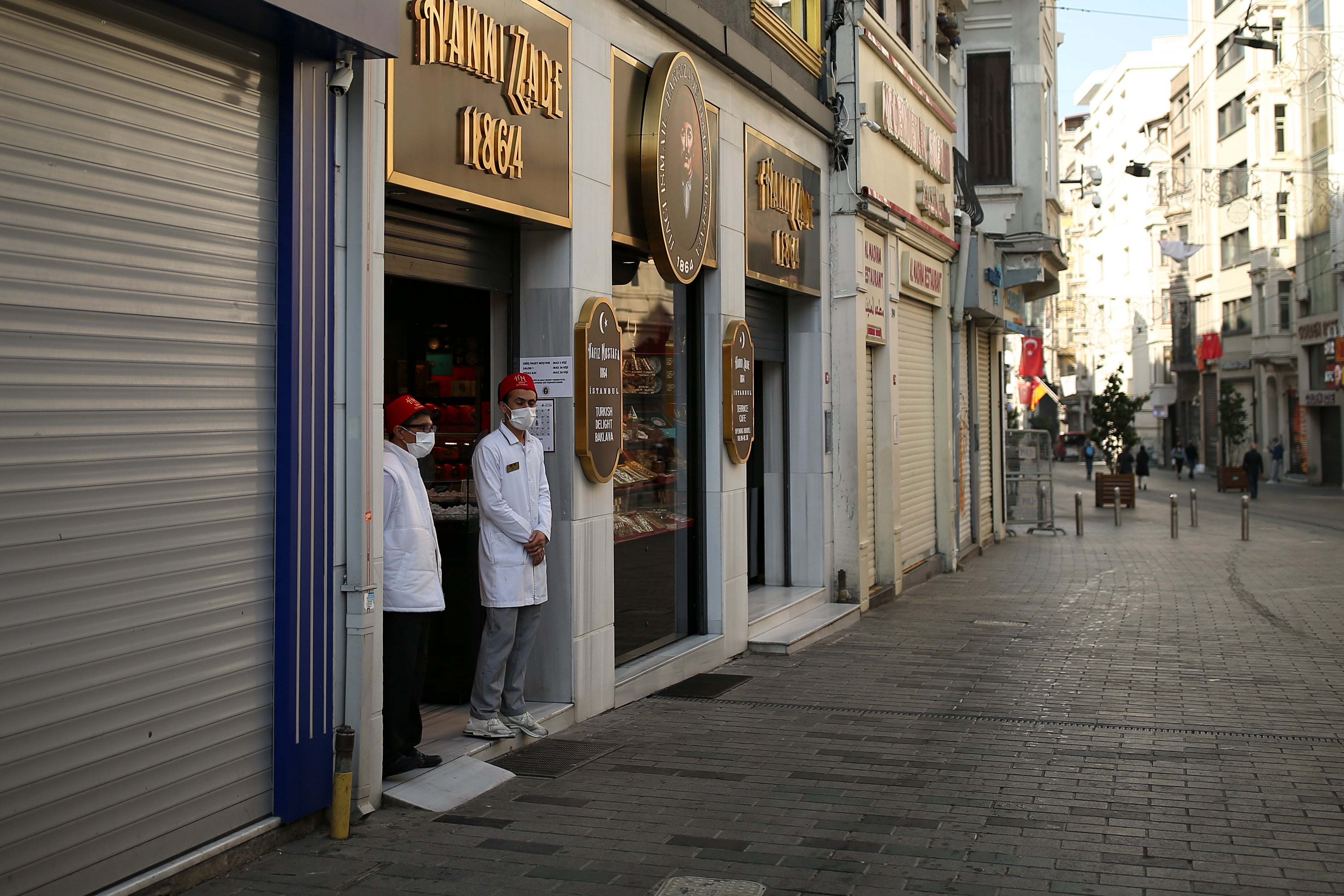Despite 3-week lockdown, many remain on the move in Turkey
Turkish security forces are patrolling main streets and have set up checkpoints at entry and exits points of cities, to enforce Turkey’s strictest COVID-19 lockdown to date

Your support helps us to tell the story
From reproductive rights to climate change to Big Tech, The Independent is on the ground when the story is developing. Whether it's investigating the financials of Elon Musk's pro-Trump PAC or producing our latest documentary, 'The A Word', which shines a light on the American women fighting for reproductive rights, we know how important it is to parse out the facts from the messaging.
At such a critical moment in US history, we need reporters on the ground. Your donation allows us to keep sending journalists to speak to both sides of the story.
The Independent is trusted by Americans across the entire political spectrum. And unlike many other quality news outlets, we choose not to lock Americans out of our reporting and analysis with paywalls. We believe quality journalism should be available to everyone, paid for by those who can afford it.
Your support makes all the difference.Turkish security forces on Friday patrolled main streets and set up checkpoints at entry and exits points of cities, to enforce Turkey’s strictest COVID-19 lockdown to date. Still, many people were on the move as the government, desperate not to shut down the economy completely, kept some sectors exempt from the restrictions.
Turkish President Recep Tayyip Erdogan imposed the new lockdown restrictions — which took effect Thursday evening and will last until May 17 — following an alarming resurgence that saw COVID-19 infections and fatalities reach record high levels.
Under the restrictions — which span the holy Muslim month of Ramadan, as well as the three-day Eid holiday — residents are banned from leaving their homes except to shop for groceries or to meet other essential needs. Intercity travel requires special permits.
However, millions of people were exempted from the stay-at-home order. In addition to health sector workers and law enforcement officers, they include factory and agriculture workers as well as supply chain and logistic company employees. Tourists were also exempted, while restaurants are allowed to deliver food.
The Confederation of Progressive Trade Unions of Turkey estimated that some 16 million workers in the country of 84 million would continue to be on the move during the lockdown.
The streets of Ankara and Istanbul were quieter than usual. Nevertheless, workers exempted from the bans filled subways cars and buses in Istanbul, broadcaster Halk TV reported.
Police patrolled the streets and set up checkpoints at main intersections to ensure that residents who were out and about had documents proving they are exempted from the stay-home order. Gendarmerie police were, meanwhile, stopping vehicles to ensure passengers had the necessary permits for intercity travel, causing long lines of vehicles.
Istanbul Gov. Ali Yerlikaya said more than 19,000 law enforcement officers would be on duty during the lockdown, and that more than 300 checkpoints would be set up.
The lockdown is the first nationwide one lasting nearly three weeks. Erdogan’s government had previously imposed partial, shorter-term lockdowns or weekend curfews in a bid to reduce the closures’ impact on the economy.
It was imposed after the country saw confirmed COVID-19 infections averaging around 60,000 per day during the peak week earlier this month. The country also recorded its highest daily death toll on April 21, with 362 fatalities. Erdogan said his government hopes to reduce infections to around 5,000 per day.
It also comes as Turkey faces a vaccine shortage in the next two months, according to Health Minister Fahrettin Koca. The shortage has forced the government to extend the interval between the two doses of the Pfizer-BioNTech vaccine to between six and eight weeks, from the previous 28 days.
Turkey has administered more than 22.5 million doses since mid-January when it rolled out its vaccination campaign. Some 9 million people have been fully vaccinated with two doses.
On Thursday, the country reported 37,674 new confirmed cases and 339 deaths. Turkey’s total death toll in the pandemic now stands at 39,737.